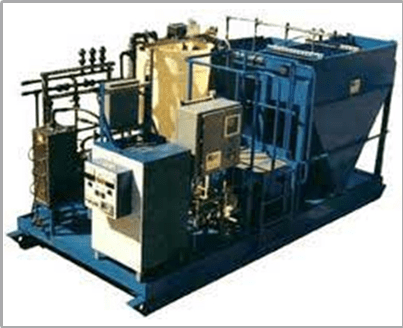Automation strategy of best sewage treatment plant suppliers.
Best sewage treatment plant suppliers had understood the fact that automation in wastewater treatment is one of the most critical industrial-level activities on planet earth today where public health is concerned. Here are some of the way’s automation technology is making this process more efficient and cost-effective.
Lower Electricity consumption
Not surprisingly, electricity consumption is the single biggest expense for wastewater treatment plants. Automating infrastructure provided by the best sewage treatment plant suppliers are one way to reduce electricity consumption expenditures associated with a number of critical water treatment processes. One example is the blowers located in holding basins, which keep the water aerated. Some estimates say blowers account for up to 60% of a treatment plant’s total electricity consumption.
Automation can improve cost-effectiveness in this area through data collection. Instead of operating the blowers constantly, at a fixed speed, plants can use information about effluent levels in holding basins to apply air and remove solids only when it’s necessary to do so. This reduces electricity consumption costs, helps maintain a steady flow and reduces wear and tear on equipment.
Constant Access to Data and Ongoing Sampling
In wastewater treatment and many other processes, “grab sampling” has long been the process managers rely on to achieve data visibility. The problem with this method is twofold: it requires ongoing labor and it only provides a snapshot of conditions at the time the sample was taken. Automating the sampling process is a better way to identify patterns and trends, engage in more meaningful analysis, and make timelier decisions before small problems become bigger ones.
Automating data sampling instead of relying on grab sampling isn’t just about collecting more data, though. It’s also about boosting the quality of that data. Best sewage treatment plant suppliers engaging in remote and online monitoring, in real-time, can save the hassle of sending samples to a lab or another secondary location for analysis. Relying on outside analysis doesn’t just present a time loss — it can also result in the samples changing in composition between the time they’re gathered and when they arrive at the lab for processing.
More Efficient Industries
Treating wastewater effectively and efficiently is an ongoing, resource-intensive challenge for the city and local governments. But it’s a challenge for many major industries, too. In the world of oil and gas, for example, activities like hydraulic fracking produce vast quantities of wastewater which must be dealt with in a timely manner for public safety and compliance reasons. Most of the time, drilling and fracking companies use trucks to simply remove the contaminated water from the area and take it to disposal sites.
Automation represents a much better and more cost-effective way to deal with wastewater produced by oil and gas prospecting. After Halliburton and ExxonMobil began using automation techniques of the best sewage treatment plant suppliers to treat “flowback” water so they could use it again, they realized cost savings of up to $100,000 per well.
Oil companies are now enjoying the benefit of eliminating transportation costs as well as many of the labor costs associated with wastewater management. Instead, central treatment plants can gather wastewater from several wells at once, treat it, and make it available for use once again — with far less human intervention required. A setup like this could mean a single operator with a tablet or laptop could keep tabs on the efficiency and compliance of multiple well operations at once.
Reduced Need for Chemical Additives
Another attractive advantage of automating control and data-gathering systems in wastewater treatment facilities is the chance to reduce the usage of chemical additives. From monitoring the depth of the sludge bed to fine-tuning the pH of water holding tanks, greater data availability can help reduce expenses and even prolong the life of critical equipment — like basins, filters and chemical pumps — by slowing down or eliminating corrosion.
Automation is a concept that can strike fear into employees in a variety of industries. But as best sewage treatment plant suppliers seen here, automation is a tool for helping us work smarter while using fewer resources. This concept is even more mission-critical in a field as vitally important for human health and well-being as wastewater treatment.







